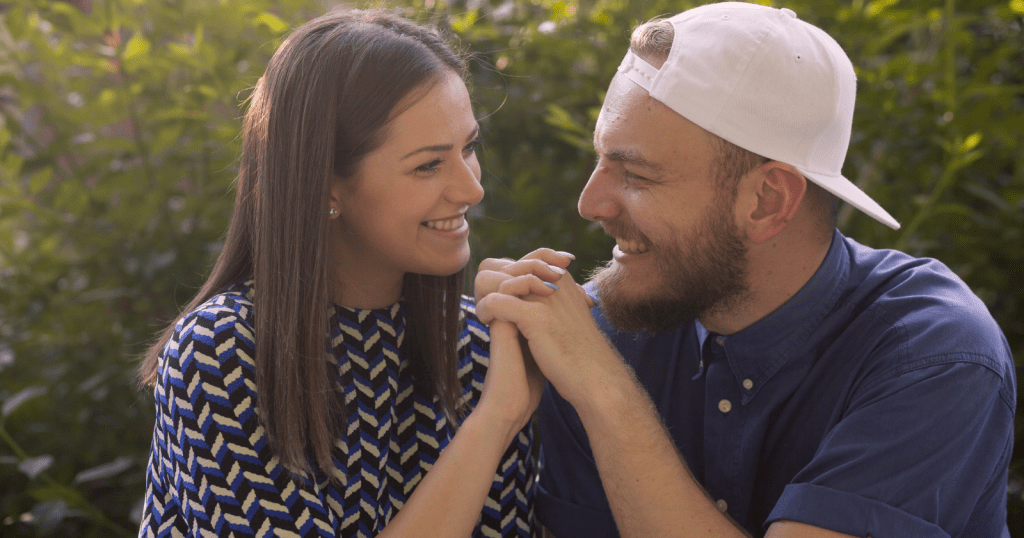Here’s something interesting: did you know that embracing vulnerability can actually change the structure of your brain, leading to more profound and satisfying relationships?
Studies show that couples who openly share their feelings and fears experience a 30% increase in relationship satisfaction compared to those who remain guarded.
This isn’t just about warm fuzzies; it’s about neuroscience. Ready to understand how vulnerability rewires your brain for love, and what actionable steps you can take to foster deeper emotional connections?
You’ll discover how to break down walls, communicate authentically, and cultivate a love that truly lasts.
The Neuroscience of Vulnerability: Why it Matters
Vulnerability often gets a bad rap, associated with weakness or exposure. However, from a neurological perspective, it’s a superpower.
When we choose to be open and honest with our partners, we activate the brain’s reward system. This, in turn, releases neurotransmitters like oxytocin (the “love hormone”) and dopamine (associated with pleasure and motivation).
These chemicals not only make us feel good but also strengthen the neural pathways associated with connection and trust. Think of it like exercising a muscle; the more you practice vulnerability, the stronger those connection-related pathways become.
On the flip side, suppressing emotions and building walls can lead to chronic stress and anxiety, negatively impacting your brain’s ability to form lasting bonds. This can even lead to increased risk of depression and social isolation.
Why does vulnerability trigger this positive cascade? Because it signals safety and trust to your partner’s brain.
When someone shares something deeply personal, it invites reciprocity and understanding, creating a feedback loop of emotional connection. It’s like saying, “I trust you enough to show you my true self,” which encourages your partner to do the same.
This process builds a secure attachment, a fundamental need we all have for healthy relationships. So, embracing vulnerability isn’t about being weak; it’s about being brave enough to build a truly strong and resilient connection.
Debunking the Myths: Vulnerability Isn’t Weakness
One of the biggest obstacles to embracing vulnerability is the misconception that it equals weakness.
We’re often taught to be strong, independent, and self-sufficient, leaving little room for showing our softer sides. However, vulnerability isn’t about being a doormat or oversharing every detail of your life.
It’s about being authentic and honest about your feelings, needs, and fears within the context of a safe and trusting relationship.
Consider it this way: vulnerability is the courage to show up as your true self, even when there’s a risk of rejection. It’s about allowing your partner to see you, flaws and all, and trusting that they will still accept and love you.
A superficial connection is no match for the trust that vulnerability can foster.
In fact, studies show that people who are perceived as vulnerable are often seen as more likable, trustworthy, and relatable. This is because vulnerability humanizes us, making us more approachable and less intimidating.
It creates a space for empathy and understanding, allowing our partners to connect with us on a deeper level.
So, instead of viewing vulnerability as a weakness, reframe it as a strength – a powerful tool for building stronger, more authentic relationships.
The Power of Shared Experiences
I remember a time when I struggled to open up in my own relationship. I had a history of being hurt in the past, so I put up walls to protect myself.
It felt safer to keep my feelings to myself than to risk being vulnerable and potentially getting hurt again. However, I realized that my walls were also preventing me from experiencing the depth of connection I craved.
One day, my partner and I were having a disagreement about something seemingly trivial. Instead of shutting down and withdrawing, as I usually did, I decided to be honest about my fears. I shared that I was afraid of being abandoned, which stemmed from a childhood experience.
To my surprise, my partner listened with empathy and understanding. They validated my feelings and reassured me of their commitment to the relationship.
That moment of vulnerability changed everything. It created a level of intimacy and trust that I had never experienced before. It also taught me that vulnerability isn’t about exposing your weaknesses; it’s about sharing your humanity.
Sharing that part of my past helped my partner understand me better, creating a deeper sense of empathy and connection. Since then, I’ve made a conscious effort to be more vulnerable in my relationships. It’s not always easy, but it’s always worth it.
When you’re ready to take your intimacy to another level, start by sharing a seemingly insignificant worry with your partner, you might be surprised at the outcome.
Rewiring Your Brain for Deeper Love

So, how can you actively rewire your brain for deeper love through vulnerability? It’s a journey, not a destination, and it involves conscious effort and practice. Here are some actionable steps you can take:
- Practice Active Listening: Truly listen to your partner without interrupting or judging. Show them that you’re present and engaged in what they’re saying.
- Express Your Feelings: Don’t bottle up your emotions. Share your feelings with your partner, even if they’re uncomfortable. Use “I” statements to express your feelings without blaming or accusing.
- Be Open to Feedback: Be willing to receive feedback from your partner without getting defensive. View feedback as an opportunity for growth and improvement.
- Share Your Fears and Insecurities: This is where true vulnerability comes in. Share your fears and insecurities with your partner, even if they’re difficult to talk about.
- Practice Empathy: Try to understand your partner’s perspective, even if you don’t agree with them. Put yourself in their shoes and imagine how they might be feeling.
Creating a safe space for vulnerability is crucial. Make sure your partner feels comfortable sharing their feelings with you without fear of judgment or criticism.
Validate their feelings and show them that you care.
Remember, vulnerability is a two-way street. It’s not just about you sharing your feelings; it’s also about creating a space where your partner feels safe and supported to share theirs.
This isn’t just about communication; it’s about creating a feedback loop of trust and empathy that strengthens your bond. And if you’re looking for a little help sparking those conversations, consider The 5 Love Languages (affiliate link) to better understand each other.
Navigating the Risks
While vulnerability is essential for building deeper love, it’s also crucial to set healthy boundaries and protect yourself.
Vulnerability doesn’t mean oversharing or disclosing personal information to everyone you meet. It’s about being selective about who you trust and sharing your feelings with those who have earned your trust.
It’s also important to recognize that vulnerability isn’t always safe. If you’re in a relationship with someone who is abusive or manipulative, being vulnerable can put you at risk.
In these situations, it’s essential to prioritize your safety and well-being. Remember, you have the right to set boundaries and protect yourself, even if it means limiting your vulnerability.
Learning to differentiate between healthy vulnerability and oversharing is key. A helpful tip is to ask yourself: “Am I sharing this to connect with my partner, or am I seeking validation or attention?”
The intention behind your vulnerability matters. When it comes to your relationship, make sure you know the signs of emotional abuse.
The Reward: A Deeper, More Fulfilling Love
Ultimately, embracing vulnerability is an investment in your relationship and your own emotional well-being. It’s about taking a risk and opening yourself up to the possibility of deeper connection and intimacy.
While it may feel scary at times, the rewards are well worth the effort. When you allow yourself to be vulnerable, you create a space for true understanding, empathy, and acceptance.
You build a foundation of trust that allows your relationship to weather the storms of life. You also tap into your brain’s natural reward system, strengthening the neural pathways associated with love and connection.
This doesn’t just improve your relationship; it also enhances your overall sense of well-being and happiness.
Consider vulnerability the cornerstone of emotional connection, sparking positive changes that nurture and enrich your brain. In the end, building true, lasting love means being brave enough to show up as your authentic self, flaws and all.
“Vulnerability is not winning or losing; it’s having the courage to show up and be seen when we have no control over the outcome.”
Vulnerability: A Continuous Journey
Vulnerability isn’t a one-time event; it’s a continuous journey. It requires ongoing effort, communication, and a willingness to grow and evolve as a couple.
There will be times when it feels difficult or uncomfortable to be vulnerable, but it’s important to remember why you started in the first place.
Remember, the goal isn’t to be perfect; it’s to be authentic. It’s about embracing your humanity, flaws and all, and allowing your partner to do the same.
So, embrace the journey of vulnerability and watch as it transforms your brain and your relationship for the better. Take control of your relationships, foster growth, and embrace the beauty of authentic connection; your heart, and brain, will thank you for it.
“To love at all is to be vulnerable.”
With over 15 years of experience in sex education and therapy, Sarah Bennett has dedicated her career to empowering individuals and couples to build fulfilling, intimate connections. As a passionate advocate for open, informed discussions about sexuality, Sarah combines expertise with a compassionate, yet straightforward approach. You can find her with a book on her favorite park bench during her down time.





